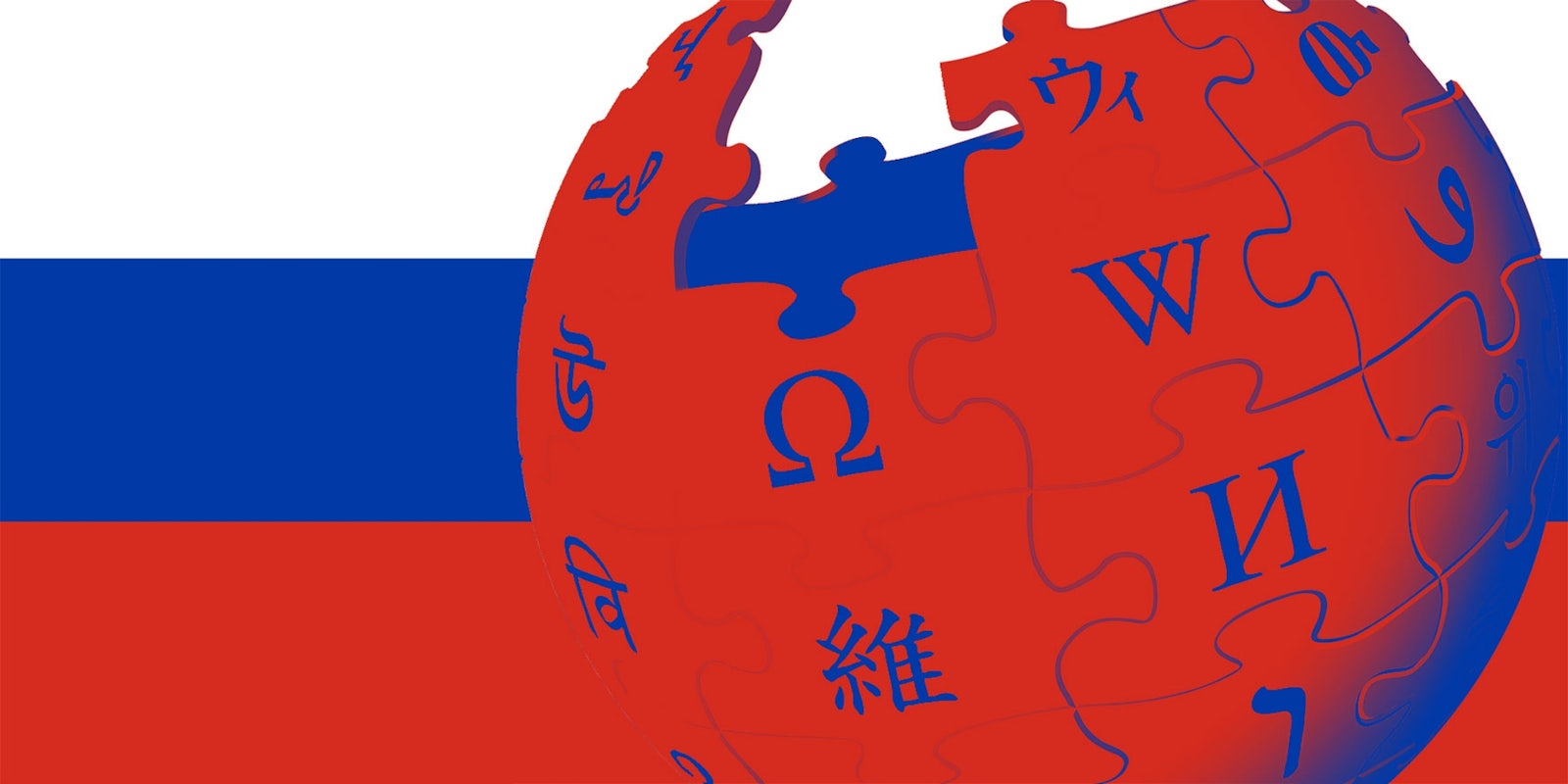In a sign of Russia’s growing determination to control its citizens’ access to information, the country is about to launch its own version of Wikipedia after criticizing the massive online encyclopedia as unreliable.
A statement released by the Presidential Library on Friday revealed that the institution is leading an effort to “develop a regional electronic encyclopedia” that directly positions itself as “an alternative of Wikipedia.”
Wikipedia, an online encyclopedia that anyone can edit, “does not have enough detailed and reliable information about Russian regions and the life of the country,” the statement says.
The new, as-yet-unnamed website will “[integrate] unique materials on the [Russian] regions in a single electronic encyclopedia [which] will allow to objectively and accurately present the country and its population, the diversity of the state, [and] the national system of Russia.”
It is expected to “be one of the most popular Russian Internet resources,” the statement adds.
Wikipedia’s user-generated content is often regarded as untrustworthy. Despite this, it has grown since its inception in 2001 to become the world’s sixth-most popular website, and according to co-founder Jimmy Wales, its reliability is ranked as second only to the Encyclopaedia Britannica.
The Russian Presidential Library project, ostensibly intended to improve access to information for Russian citizens, is in keeping with Russia’s recent efforts to control the Internet. In September 2014, the government told major technology companies—including Facebook and Twitter—that they would be required under new legislation to store user communications in the country for six months, in what has been interpreted as an attempt to keep tabs on citizens’ online communications. Just a month prior, new laws forced bloggers with more than 3,000 monthly readers to register with the media regulator. “This is another milestone in Russia’s relentless crackdown on free expression,” Human Rights Watch director Hugh Williamson said at the time.
Russia has also considered banning Bitcoin and other digital currencies, and blogging platform LiveJournal has been attacked for helping to censor the work of an anti-Kremlin activist. Russian President Vladamir Putin, meanwhile, characterized the Internet as a “CIA special project.”
Following the Ukrainian civil war and the shooting down of Malaysian Airlines Flight MH17, Russia’s relations with the West have plunged to record post-Cold War lows. This new effort to produce a “Russian Wikipedia” can be understood both as the latest effort to regulate Russian citizens’ access to the Internet and as a deliberate balkanization of the Web that further removes Russians from the predominantly Western mainstream of the Internet. As a result, Russian authorities will exert ever-greater and ever-more-exclusive control over what their citizens consume online.
H/T Huffington Post | Illustration by Rob Price


